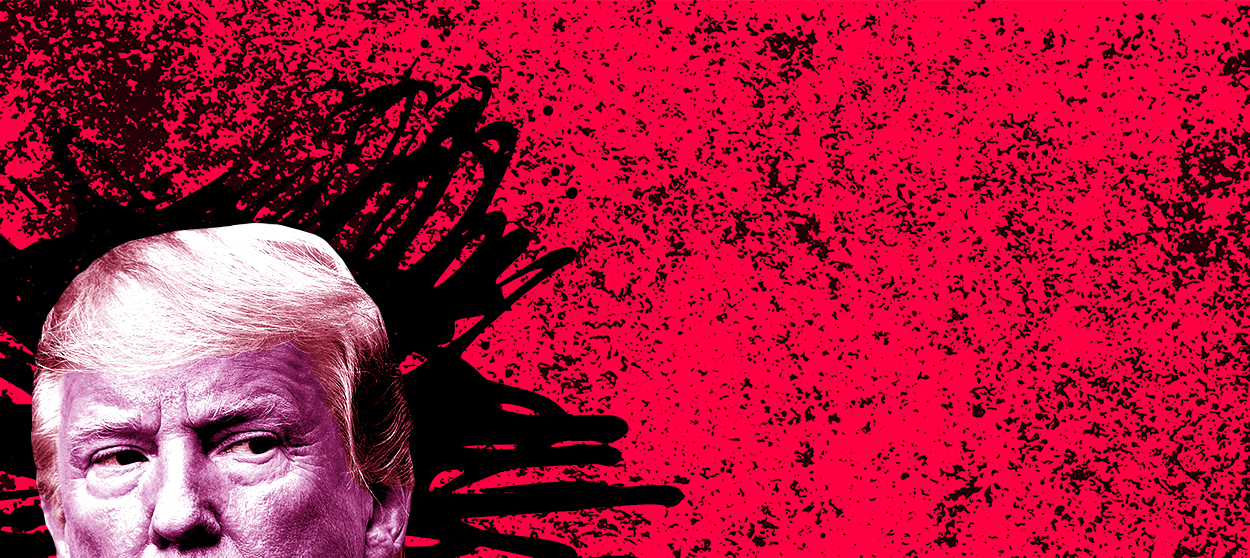This won't cost him
There's no deeper strategy to Trump's racist tweets. There will also be no consequences.


A free daily email with the biggest news stories of the day – and the best features from TheWeek.com
You are now subscribed
Your newsletter sign-up was successful
At the risk of outing myself as an absolute cretin, I will admit that when I first saw second-hand reports of President Trump's weekend tweets about Democratic Reps. Alexandria Ocasio-Cortez (N.Y.), Ilhan Omar (Minn.), Rashida Tlaib (Mich.) and Ayanna Pressley (Mass.), I thought something must have been missing from the summaries. Surely, beneath all the not-so-incidentally racist trappings, there was some kind of argument, however crudely or viciously put.
Maybe he was talking about the incongruity between the almost apocalyptic picture of American life painted by American liberals and their insistence that there are virtually no circumstances under which a person should be denied entry to this country. If it's such a hellhole, why should anybody want to live here? (This is not particularly striking, nor is it an unanswerable rejoinder, but it's certainly well within the range of cogent observations one might expect our moronic politicians to make about one another.)
I was wrong. This was not the point Trump was making or even attempting to make. He never even mentioned immigration per se or anything else that could be described as an "issue" in American politics. Instead he asked why the four congresswomen should presume to have any views about how this country should be run and suggested that they return to their homelands (New York, Cincinnati, and Detroit in the respective cases of Ocasio-Cortez, Pressley, and Tlaib) and help fix things there.
The Week
Escape your echo chamber. Get the facts behind the news, plus analysis from multiple perspectives.

Sign up for The Week's Free Newsletters
From our morning news briefing to a weekly Good News Newsletter, get the best of The Week delivered directly to your inbox.
From our morning news briefing to a weekly Good News Newsletter, get the best of The Week delivered directly to your inbox.
This was not a dog whistle. This was not even an elephant whistle or a whistle designed with any moderate-to-large-sized mammal in mind. It was a siren call meant to get the attention of every living American.
In some ways the tweets seem like a painfully unforced error. Why should Trump and the rest of his party not sit back while Nancy Pelosi and the rest of the Democratic leadership fight with "the Squad"? If anything, it seems to me that it is in his best interest to allow AOC and her colleagues to weaken the center-left establishment that is almost certainly going to capture their party's presidential nomination in 2020. If the tedious follow-up tweets in which he pretended that he was criticizing these women for their views on Israel and — I am having trouble typing this with a straight face — their use of "foul language" are any indication, Trump doesn't even have the courage of his own anti-convictions here. This is going to cost him, isn't it?
I doubt it. Pretending otherwise would be as naïve as assuming that Trump must have been making some kind of point with his tweets. We've already watched this scenario play out during the campaign in 2016, after the murder of an American citizen by a white supremacist terrorist in Charlottesville, after his offhand comments about "s***hole countries." Meanwhile, the media's Boy Who Cried Wolf approach to criticizing Trump has made it impossible for anyone except the most dedicated observer — the kind of person who is likely to have made up his mind about the president long ago — to distinguish between what is vile, commendable, and indifferent about this administration. For most people it long ago became a blur.
Does this mean that Trump is in some bizarre unconventional sense "good at politics"? Maybe. He certainly isn't hurting himself or his political fortunes by talking this way. The only people who are adversely affected by his rhetoric are the rest of us who have to inhabit the noxious political atmosphere that he did not create but in which he has flourished. He will not be the last important American politician to employ these tropes — perhaps not even the last president. This is the cockle of rebellion, insolence, and sedition that we ourselves have plowed for, sowed, and scattered.
A free daily email with the biggest news stories of the day – and the best features from TheWeek.com
Now it's harvest time.
Matthew Walther is a national correspondent at The Week. His work has also appeared in First Things, The Spectator of London, The Catholic Herald, National Review, and other publications. He is currently writing a biography of the Rev. Montague Summers. He is also a Robert Novak Journalism Fellow.
